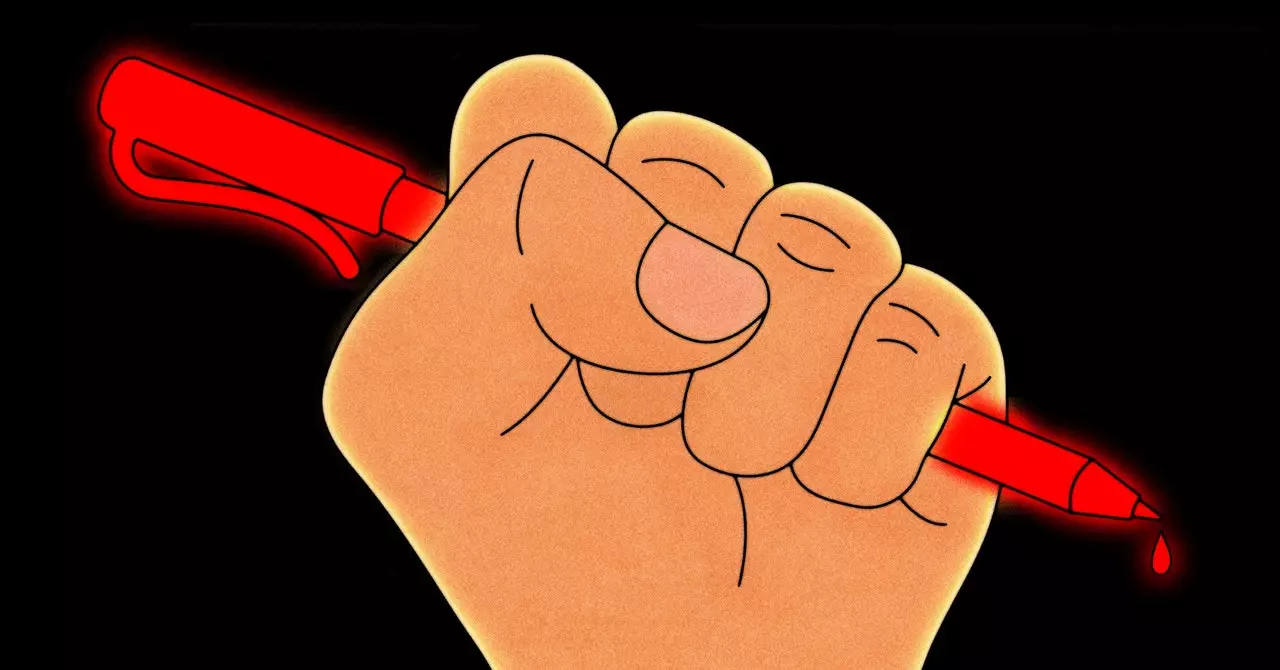In the rapidly evolving domain of artificial intelligence, the intersection with copyright law has become a contentious battlefield. The legal dispute initiated by Thomson Reuters against Ross Intelligence in May 2020 marked the inception of a series of lawsuits that would challenge the legitimacy of AI’s engagement with copyrighted materials. Thomson Reuters accused Ross Intelligence of infringing upon US copyright law by appropriating content from Westlaw, their legal research platform. This lawsuit barely registered in public consciousness amidst the chaos of the COVID-19 pandemic, yet it set the stage for a significant conflict between content creators and AI companies that has since escalated dramatically.
As AI technologies have advanced, courtrooms nationwide have echoed with the sentiments of authors, artists, media conglomerates, and musicians who feel their intellectual property is under siege. The wave of lawsuits represents diverse interests, including celebrated individuals such as Sarah Silverman and Ta-Nehisi Coates, alongside big names like Universal Music Group and The New York Times. These voices raise concerns about the potential exploitation of their work in the training of AI models, which are often capable of generating substantial revenue. This pluralistic outcry underscores the vital stakes for creators in an age where AI’s capabilities have reached unprecedented heights.
To counter allegations of copyright infringement, AI firms frequently lean on the “fair use” doctrine—a legal principle that permits limited use of copyrighted material without obtaining permission from the rights holder. Proponents of this defense argue that the transformative nature of AI-generated outputs qualifies as fair use. Classic instances of fair use include critiques, reporting, or academic inquiry where the intent is not to usurp the original work but rather to build upon or respond to it.
However, opinions vary widely on the applicability of this doctrine to AI development. Critics argue that generative AI models are not merely engaging in transformative works but are rather copying and synthesizing existing works to function effectively. This raises critical questions about the essence of creativity and originality in AI outputs, and whether these mechanisms can justify extensive use of creators’ labor. The stakes are substantial—not only for the involved parties, but for the future of how creativity is defined in a technologically advanced society.
The repercussions of these legal battles extend well beyond the entities directly involved. Major AI players like OpenAI, Meta, Microsoft, Google, Anthropic, and Nvidia have found themselves embroiled in complicated litigation, with each lawsuit posing a potential threat to their operational models. As the outcomes of these cases unfold, their implications could reverberate through the entire AI sector, potentially shaping policies around the permissibility of data sourcing and usage in AI training.
The case against Ross Intelligence continues to advance through the judicial system, with a trial previously scheduled for earlier this year now facing indefinite postponement. As the wheels of justice turn slowly, Ross Intelligence has succumbed to the financial pressures of legal battles, a cautionary tale for startups navigating these treacherous waters. The uncertainty over resolution further complicates the environment for AI enterprises looking to innovate without the fear of extensive legal ramifications.
In light of the rapidly changing legal landscape, it is imperative for both AI companies and content creators to remain informed about ongoing litigation. Insightful resources, such as those provided by outlets like WIRED, have emerged—aiming to elucidate the complex relationships between the myriad actors involved. As AI innovations continue to proliferate, understanding the boundaries of copyright law, fair use, and the potential for creative collaboration will be crucial in establishing a flourishing ecosystem that respects and upholds the rights of creators.
The clashes between AI and copyright law are just beginning. As society grapples with these developments, the conversations initiated by these lawsuits will play an essential role in shaping the future of AI, creativity, and intellectual property rights in the digital landscape. In the end, the outcomes of these disputes may redefine not only the future of AI companies but also the fabric of content creation itself in our increasingly interconnected world.

